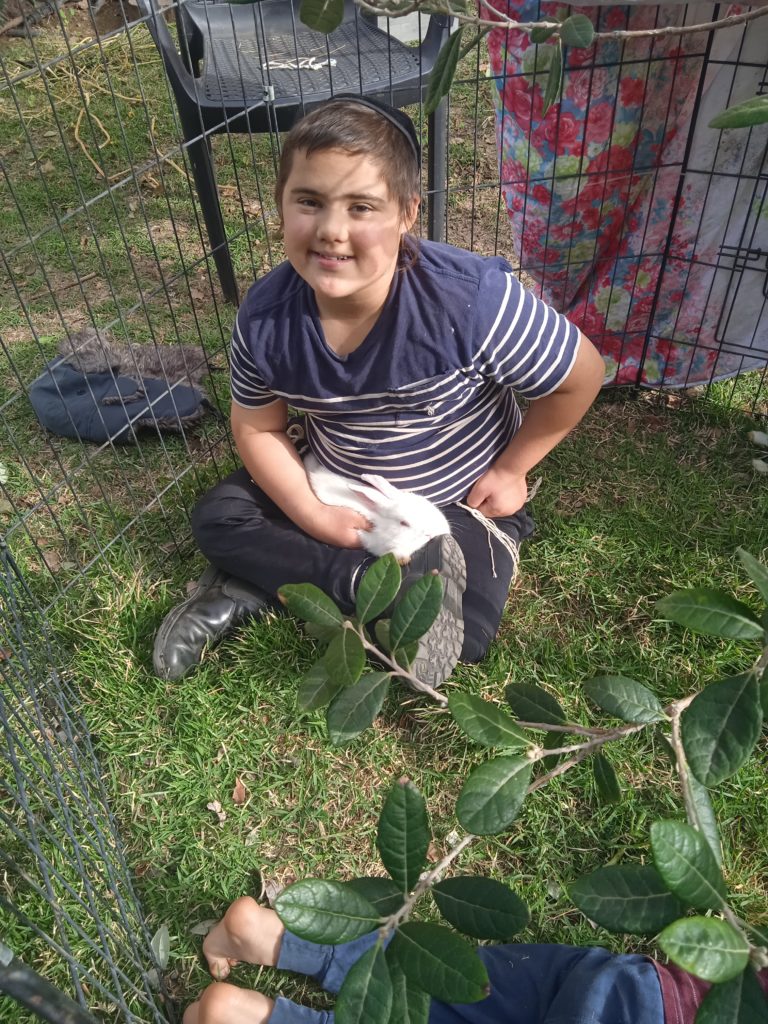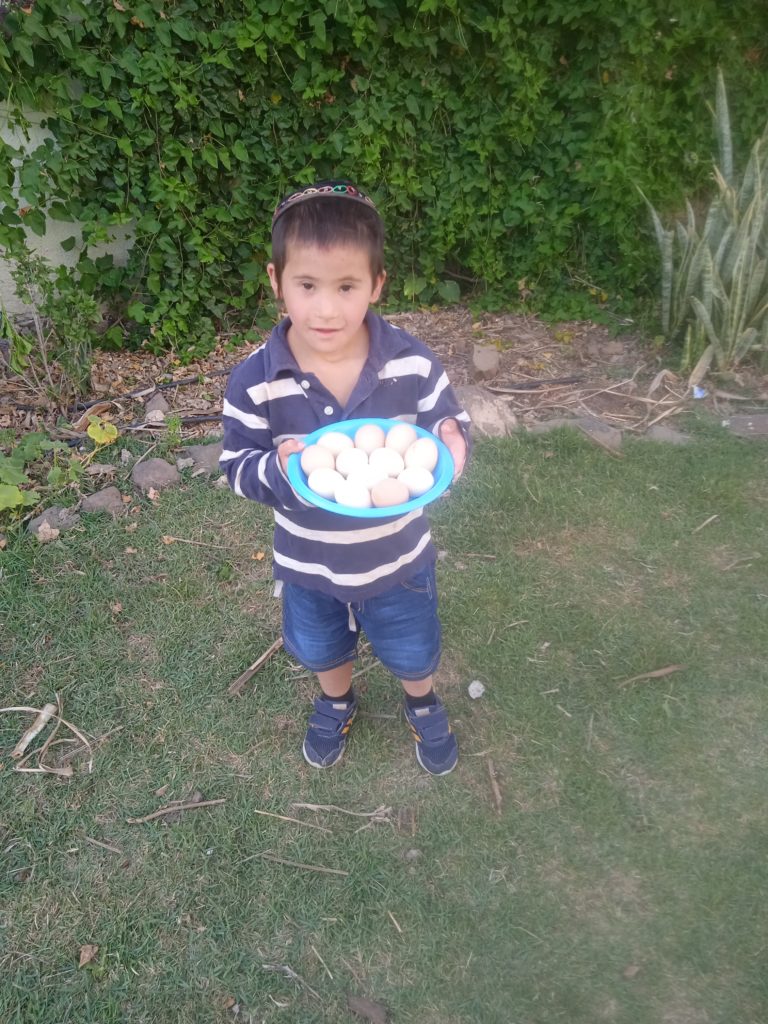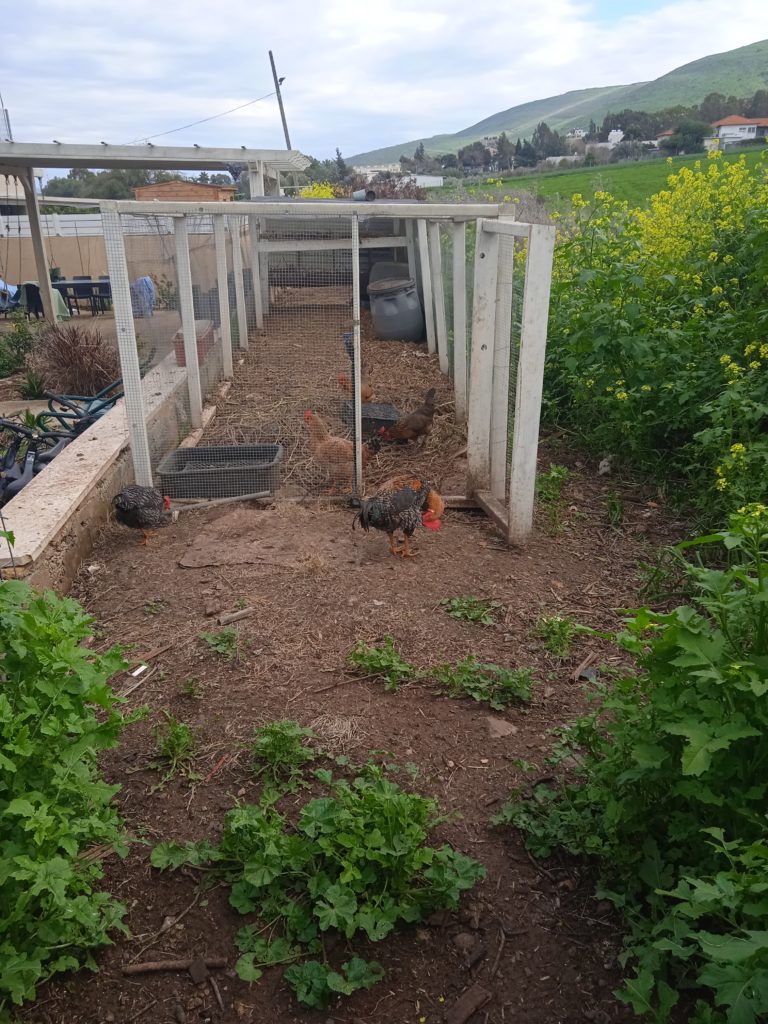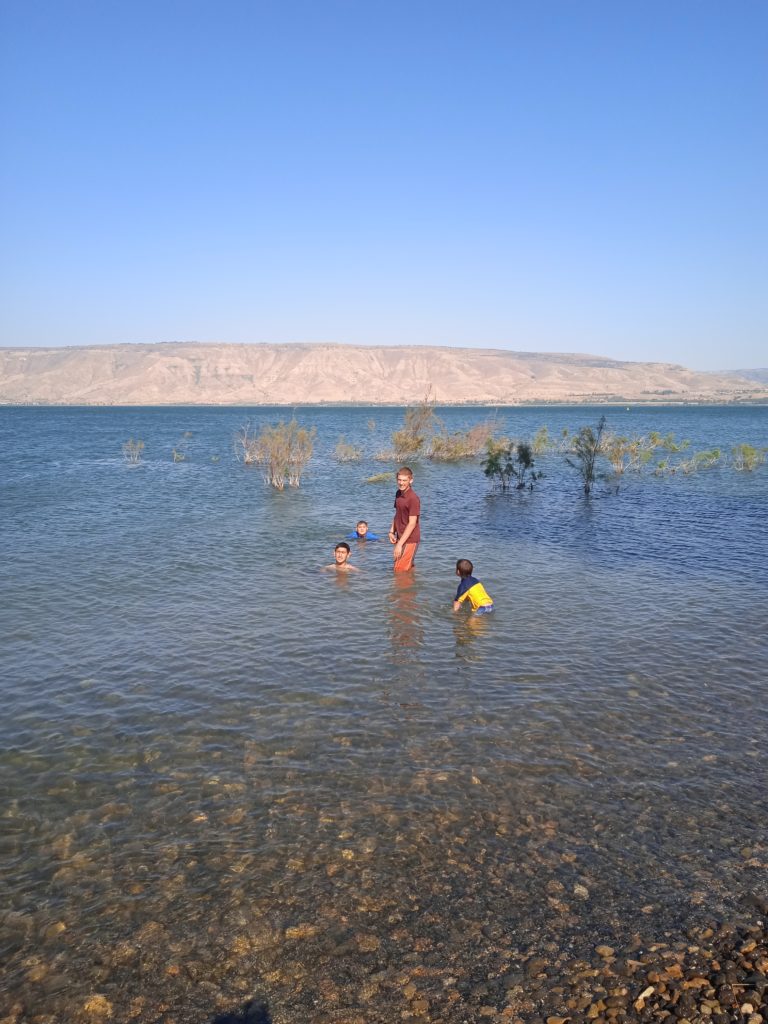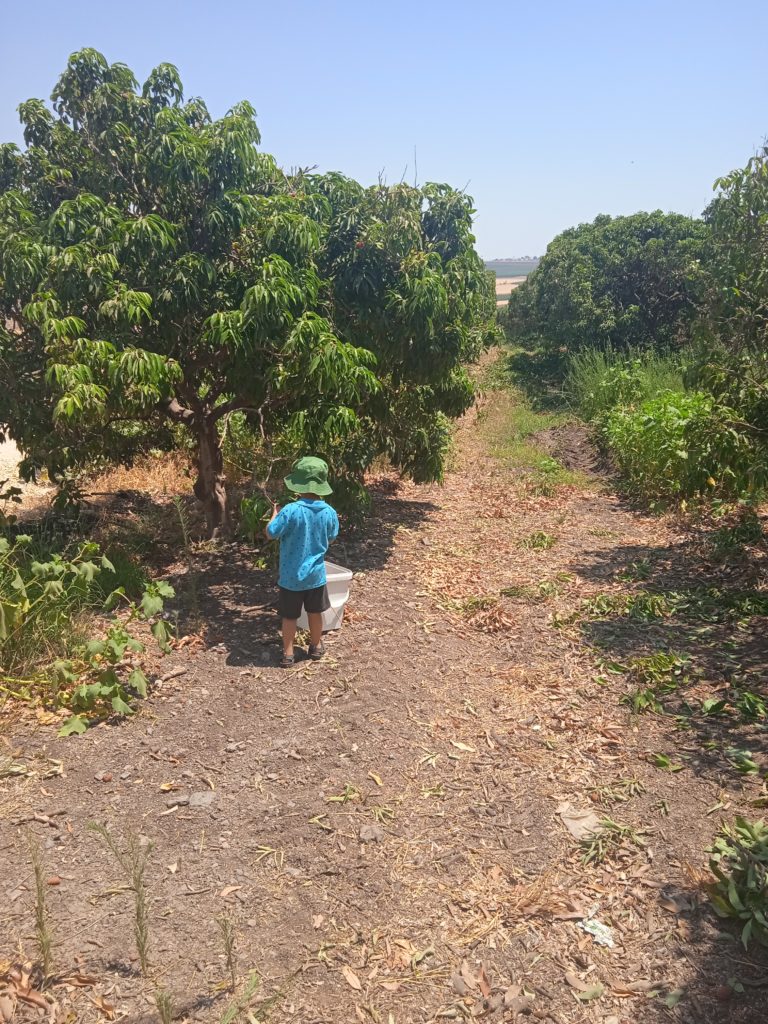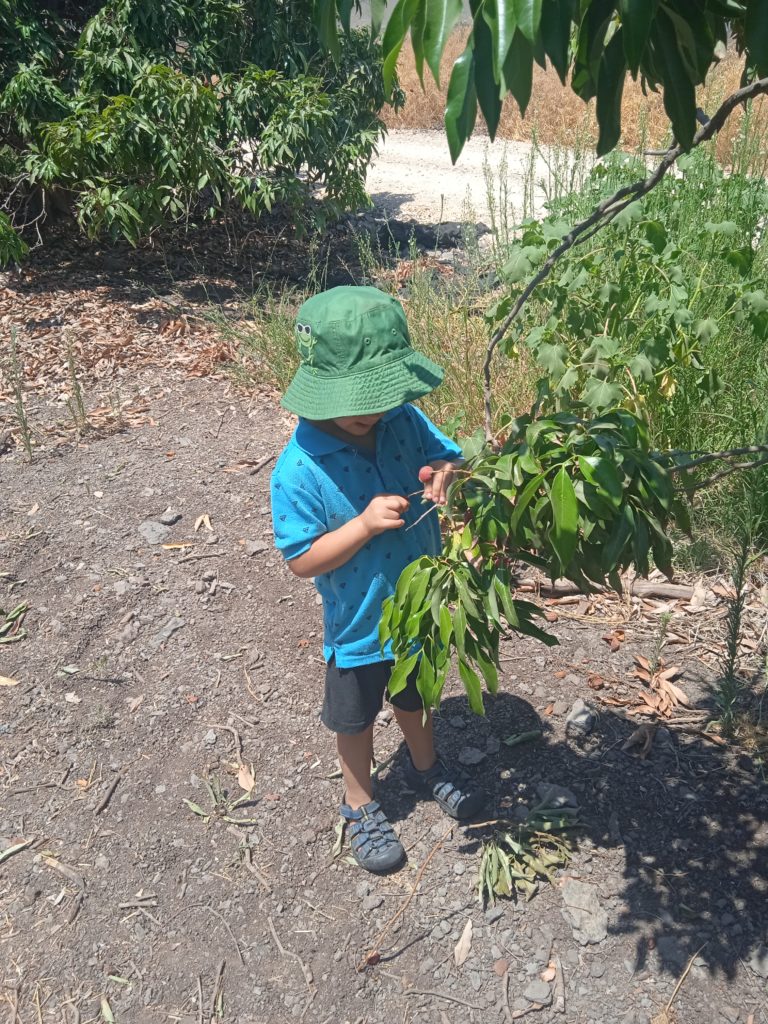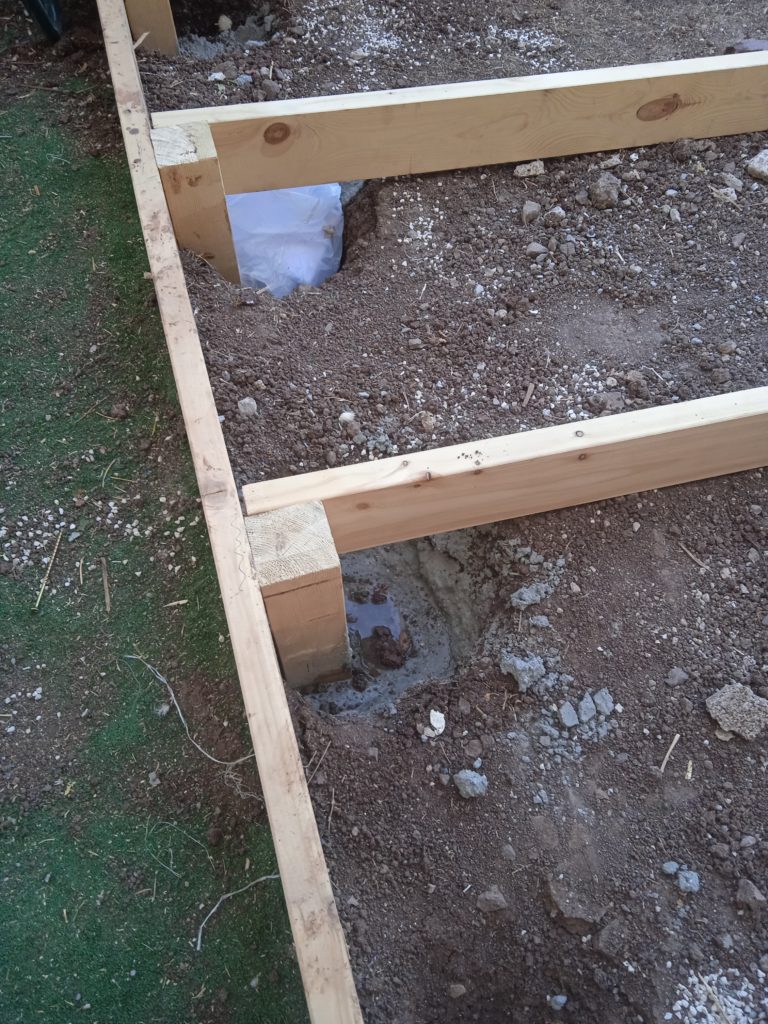What a busy and enjoyable holiday season it’s been!
Our youngest daughter was born during Sukkos. This year on the day of her birthday, my second daughter (who was visiting with her family for the week) spontaneously suggested we make a special party for her sister, knowing it would mean a lot to her. I told her I thought it was a good idea but I was maxxed out with the nonstop cooking for all the holiday meals and wouldn’t have time to make something on short notice.
My daughter whipped up a three layer cake with filling and frosting, while my oldest daughter and sixteen year old son composed a grammen (rhyming poem recited aloud to a specific tune). That night after dinner, our birthday girl was surprised when my son performed the grammen, followed by birthday cake.
My older daughter also prepared a skit for that evening, but the skit participants didn’t feel they had enough time to prepare. We had chosen to make the party the night of her birthday, rather than waiting until the next night when all of our married children would be there with their families. We thought she would appreciate the quieter and more intimate setting, which she did.
However, with the change in plans with the skit, we decided to push the skit and birthday circle off to the next night, when all of our children would be there.
The next night, we began by repeating the grammen, since a number of people weren’t present the night before. Then the skit was performed, which was very funny; I was almost crying with laughter!
Finally, we had our traditional birthday circle, in which each person present shares something they appreciate about the birthday celebrant. My daughter had told me she doesn’t appreciate the joking that sometimes accompanies the circle, so I made an announcement to please not make any comments about anything someone else says and everyone respected that. She afterwards told us how meaningful and special it was for her.
About birthday circles – as nice as it is to hear people saying good things about you, it can also feel uncomfortable. I think it’s very important to learn to accept positive feedback, to recognize that you’re appreciated, to allow yourself to feel loved and valued, and to sit with the discomfort of listening to all the feedback in the presence of others, without making any comments to minimize what was said, or deflecting the praise.
For those giving the positive feedback, it’s important to practice seeing the good in others. To learn to express that in an honest and straightforward way is also an unfamiliar skill for many people; there’s a societal discomfort in straightforwardly letting people know that we like them or how they do things.
Having a yearly opportunity to honor each sibling gives everyone opportunities to practice these skills. We instituted birthday circles when our younger boys were very young, at least twelve years ago. Their early shares were very simple and sometimes silly. As time has gone on, they have evolved into being able to express meaningful and thoughtful feedback for someone else. The older siblings have commented on the quality of their younger brother’s feedback, saying that they didn’t have such well-thought out comments at that age. But they also hadn’t grown up with it for years like their younger siblings!
I don’t remember exactly when we began this custom and I don’t remember why, but I’m so glad it’s become part of our family culture. When you do something sporadically, it takes a lot of effort to remember to do it and then draft the cooperation of all participants. Since birthday circles are well-entrenched in our family routines, it takes minimal effort; everyone knows what to expect and what their part is. And of course, every person appreciates the opportunity to be the recipient of appreciation each year.
I encourage you to consider introducing a family tradition that will give family members a regular opportunity to express their appreciation for one another. It’s such a nice thing to be part of.
Avivah

